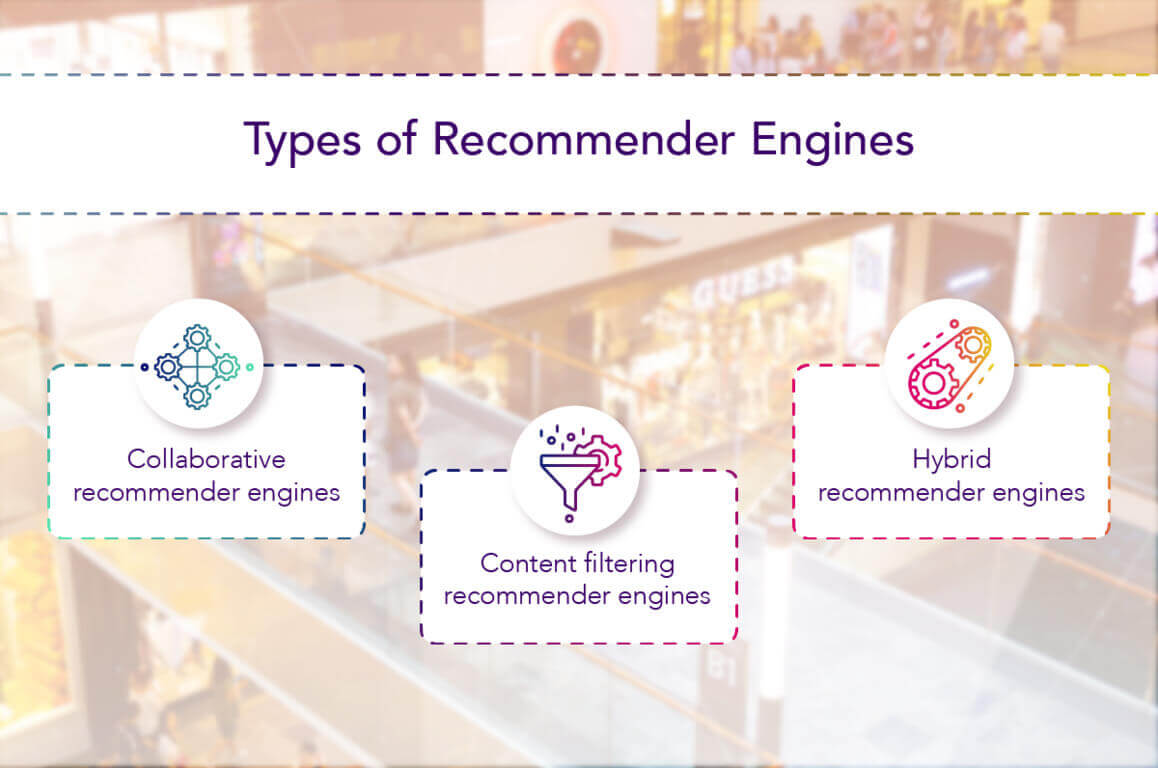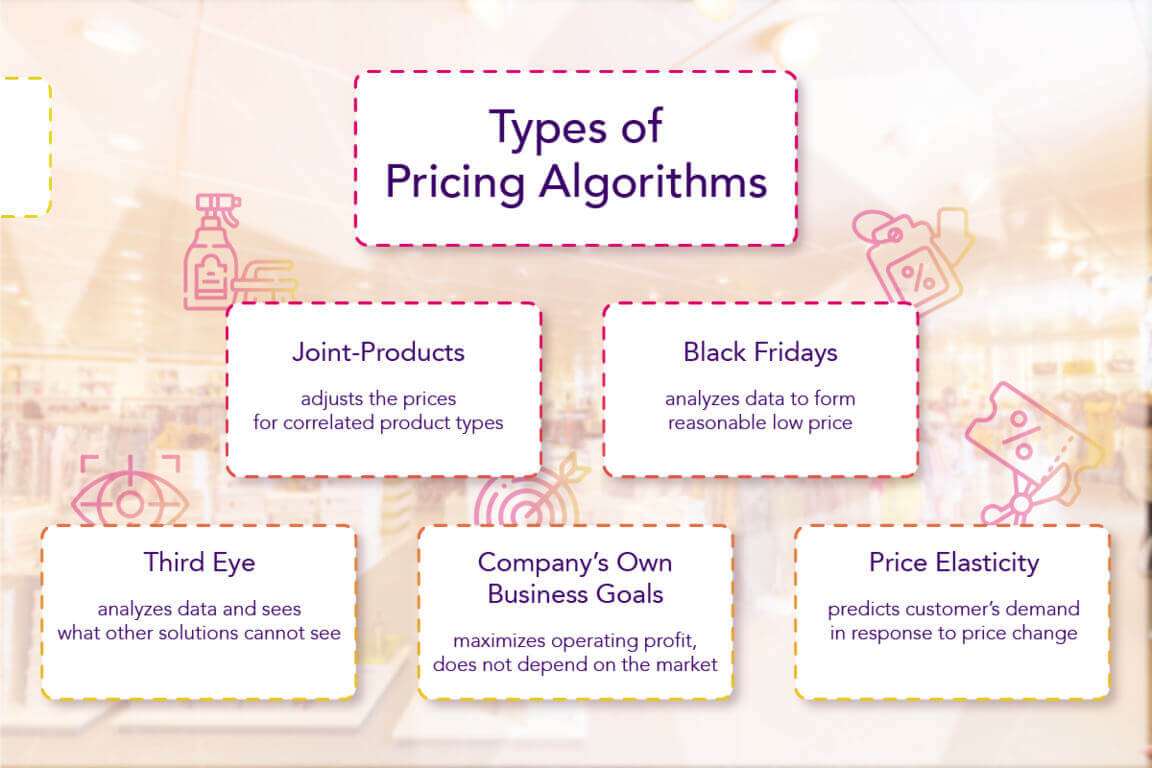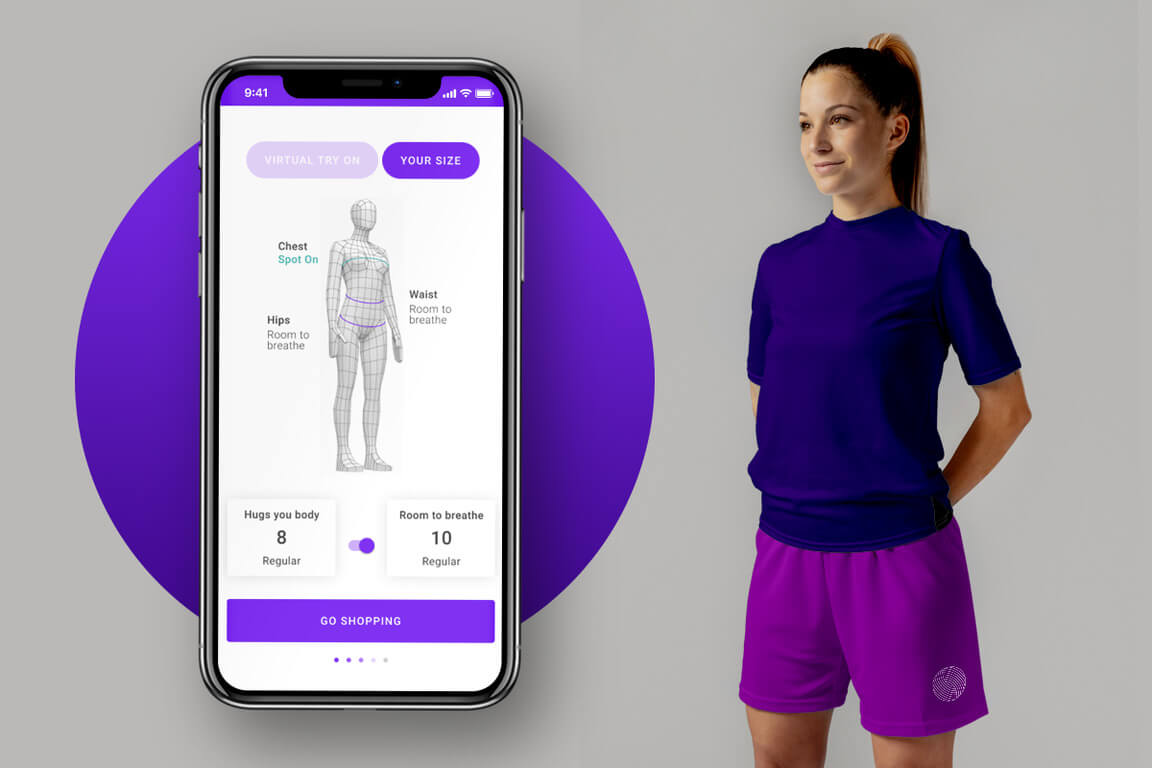AI is an umbrella term that includes many categories: Machine Learning, Computer Vision, Optical Character Recognition, Deep Learning, and Natural Language Processing. Each of these subtypes has direct applications in e-commerce & retail marketing. AI-based solutions include:
- Recommender engines;
- Pricing algorithms;
- Intelligent Virtual Assistants (chatbots of a new generation);
- Computer Vision retail analytics (heatmaps of the stores, control of the goods on the shelves, sentiment analysis).
Some solutions, such as recommender systems, are more popular and familiar to clients. Others require more time and resources for understanding and implementation. But don’t worry, we’ll explain them all.
Recommender Engines
Let’s start with the AI solutions for e-commerce & retail marketing that already bring value to businesses. The first thing that you would think of is a recommender engine, the core of personalization marketing for any online store. Such tools help businesses sell more and help clients find products they need faster and with less fuss. In other words, they bring real value to businesses and their clients by offering deals customers may be interested in.
Recommender Engine Case and Review
You can encounter recommender engines in daily life when buying goods on Amazon or choosing a movie on Netflix. These recommender engines are one of the most popular AI algorithms that billions of people use every day. Harvard Business Review sees them as the most useful.
l applications of Machine Learning (ML). ML allows customers to get better results over time. So the more users search and buy, the better recommendations they get.

Here’s what recommender engines can do:
- Analyze users’ previous buying behavior and offer recommendations;
- Analyze the behavior of the clients with similar tastes;
- Predict new probable purchases of the customers.
Each e-commerce website can add this recommender engine function to increase sales. Big businesses such as Netflix, Amazon, and Spotify already have them. However, smaller companies will benefit from them as well.

Recommender engines are an essential part of one of the most prominent e-commerce trends—Augmented Reality shopping. Below, you can read more about recommender engine development.
Pricing Algorithms
The next most relevant and applicable AI solutions for e-commerce and retail marketing are pricing algorithms. Effective pricing is one of the milestones of effective business strategies. Machine Learning allows e-commerce stores to create pricing algorithms that automatically adjust the prices of goods and services. The adjustment depends on real-time data changes that reflect the dynamic e-commerce environment. A study finds that high-frequency pricing algorithms can increase profits, even if the firms are otherwise identical.

There are different variants of pricing algorithms: “Third Eye,” “Black Friday,” and others. Each of them performs its own function. For example, such tools can keep prices as low as possible to attract new customers or maximize profit.
Whether or not to raise the prices and for how much is now much easier to answer. Machine Learning pricing algorithms can quickly analyze large amounts of data and provide the most accurate suggestions in real-time. ML-powered tools can change the pricing strategy according to your needs.
Intelligent Virtual Assistants
Pricing is important, but good customer service is also a crucial factor in high sales in e-commerce. And there are AI solutions that can improve customer service. They are chatbots, and 74% of customers expect to encounter them on a website. And not without reason. Conversational AI in e-commerce can handle basic queries pretty fast, even on a large scale.
However, many chatbots are outdated. They are supposed to mimic human speech, but they hardly manage to do it. Still, customers expect you to provide them with unique and personalized experiences throughout their journey with your brand.

That’s why modern algorithms provide a basis for building human-like chatbots such as GPT-3. These next-gen chatbots are called Intelligent Virtual Assistants. They use the capabilities of a special AI type – Natural Language Processing – to build human-like experiences. In other words, Intelligent Virtual Assistants are advanced chatbots with a better understanding of conversation flow and customer needs.
Computer Vision Solutions for Retail
AI is related not just to e-commerce. There is one AI technology that can dramatically improve the in-store experience for shoppers. It is called Computer Vision (CV) or Machine Vision. Retail marketers can automate many operations and receive numerous insights by using footage from cameras on any big shopping mall.
CV-powered video analytics can help retailers in several ways:
- Control the goods on the shelves automatically. In big shopping malls, this feature can be life-saving. Retail managers can optimize operations by having fewer goods expire and requiring less labor time to monitor everything manually;
- Create heatmaps of the stores that help marketers to identify the most and the least visited zones. This knowledge allows store employees to place goods more efficiently;

- Understand the emotions of customers inside the stores. This feature is called sentiment analysis, and it can provide retail owners with insights into the behavior and emotional state of their clients. In other words, CV automates the monitoring of customer satisfaction.
Computer vision solutions are getting more affordable for small and medium-sized businesses as well. With such solutions, retail and e-commerce marketing teams can receive more insight into their customers’ behavior or increase sales. More about CV and AI in the retail industry:







